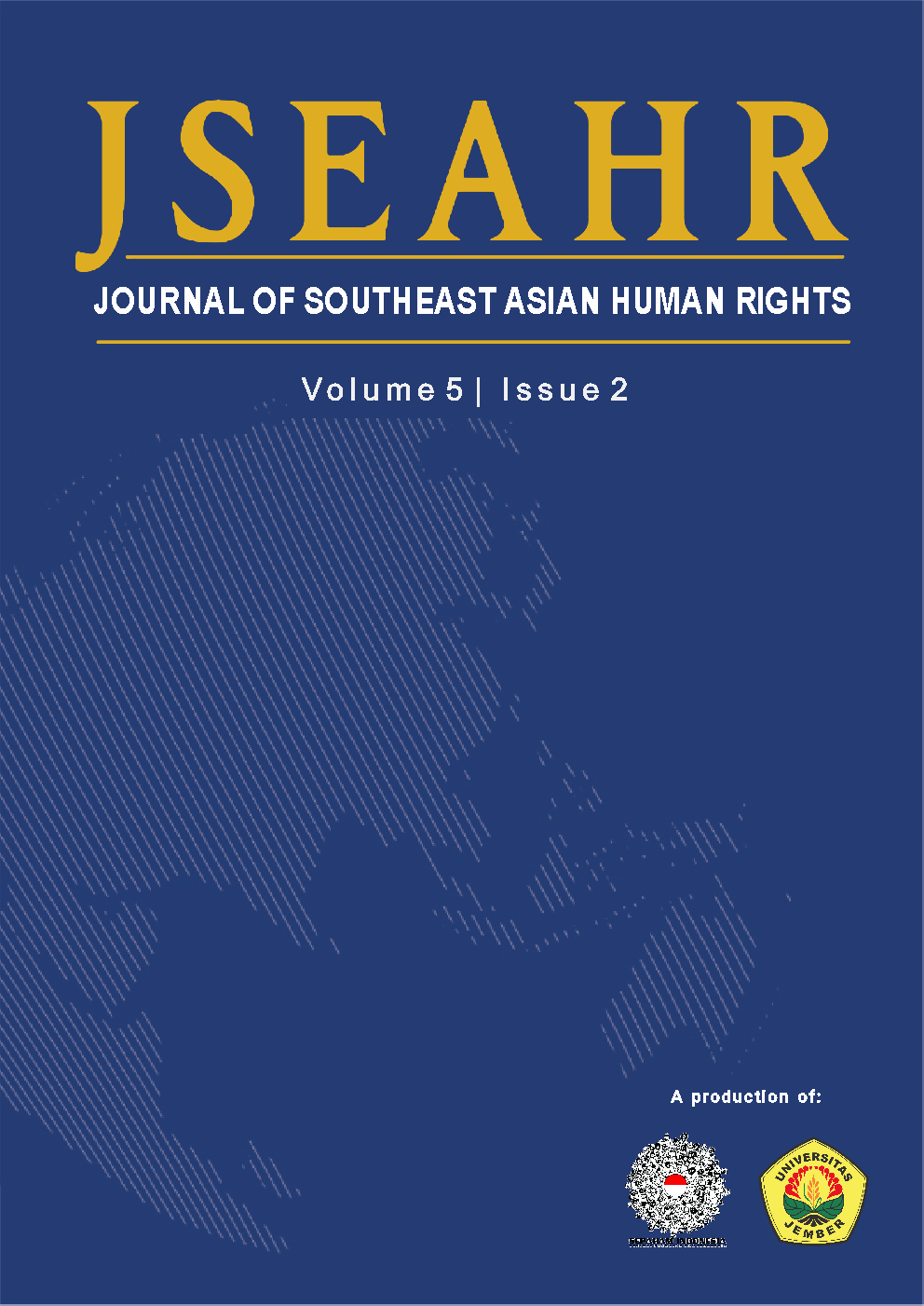Testimony and Identity in Burma
women's voices over time
DOI:
https://doi.org/10.19184/jseahr.v5i2.27930Keywords:
Burma, women’s testimony, dialogism, identityAbstract
The oppressive force of the Burmese military continues to inflict abuse upon the many different ethnic groups within its borders. Women have been at the forefront of resistance using testimony, using the medium to resist the oppression of the state military through language. This article examines the testimonial as a site of resistance through a dialogical analysis of two texts representative of historical moments in Burma’s history of state oppression. It argues that the language of testimony creates spaces for identity formation as a form of resistance. Through a dialogical analysis of two testimonies representative of different political moments, this article builds upon this notion, and argues that the testimonial not only represents a site of resistance and space of identity formation for women oppressed within the bounds of the state, but also allows for the reassertion of collective identities that stand as a foundation for collective action.
Downloads
References
Barrios de Chungara, Domitila & Moema Viezzer. Si me permiten hablar, ed (Mexico: Siglo Veintiuno Editores, 1978).
Beatty, Linnea M. "Democracy Activism and Assistance in Burma" (2010) 65:3 International Journal: Canada's Journal of Global Policy Analysis 619-636.
Burma, women's voices together, ed (Bangkok, Thailand: Altsean Burma, 2003).
Chin, Van Sui. "A Chin Woman's Story" in Burma, women's voices together, ed (Bangkok: Altsean Burma, 2003), 17, 19-20.
de Peuter, J. "The Dialogics of Narrative Identity" in MM Bell & M Gardiner, ed, Bakhtin and the Human Sciences: No Last Words, ed (Sage, 1998).
Hajdukowski-Ahmed, Maroussia, Nazilla Khanlou & Helene Moussa. Not born a refugee woman, ed (New York: Berghahn Books, 2009) 29.
Human Rights Watch. "We are Like Forgotten People" The Chin People of Burma: Unsafe in Burma, Unprotected in India (Human Rights Watch, 2009) 68.
Jackson, Stevi. "Self, Time and Narrative: Re-thinking the Contribution of G. H. Mead" (2010) 7:2 Life Writing 126.
Kachin Women's Association of Thailand (KWAT). Pushed to the brink: Conflict and trafficking on the Kachin-China border (KWAT, 2013).
Kachin Women’s Association of Thailand (KWAT), Submission to CEDAW regarding the General Recommendation on the Trafficking of Women and Girls in the Context of Global Migration (KWAT, 2019).
Kachin Women’s Association of Thailand (KWAT), Deadly reprisals: regime steps up attacks on civilians in retaliation for conflict losses in northern Burma. (KWAT, 2021) 3-13.
MarÃn, Lynda. "Speaking Out Together: Testimonials of Latin American Women" (1991) 18:3 Latin American Perspectives 51-53.
Mead, George Herbert. Mind, Self & Society, ed (University of Chicago, 1934), 143.
MenchuÌ, Rigoberta & Elisabeth Burgos-Debray. I - Rigoberta Menchu, ed (London: Verso Editions, 1984).
Moraga, CherriÌe & Gloria AnzalduÌa. This bridge called my back, ed (Albany, N.Y: Suny Press, 2015).
Moya, P. M. "Postmodernism, 'Realism,' and the Politics of Identity: Cherrie Moraga and Chicana Feminism" in MJ Alexander & CT Mohanty, ed, Feminist Genealogies, Colonial Legacies, Democratic Futures, ed (Routledge, 1997) 127, 136.
Sadan, Mandy. War and peace in the borderlands of Myanmar, ed (Copenhagen: NIAS Press, 2016) 1-26.
Spivak, Gayatri Chakravorty. "Can the Subaltern Speak?" (2003) 14:27 Die Philosophin 42-58.
Yudice, George. “Testimonio and Postmodernism†(1991) 18.3 Latin American Perspectives 15–31.
Zavala, I. M. "Bakhtin and otherness: Social heterogeneity" in C Thompson, ed, Mikhail Bakhtin and the Epistemology of Discourse, (Rodopi, 1990) 86.







